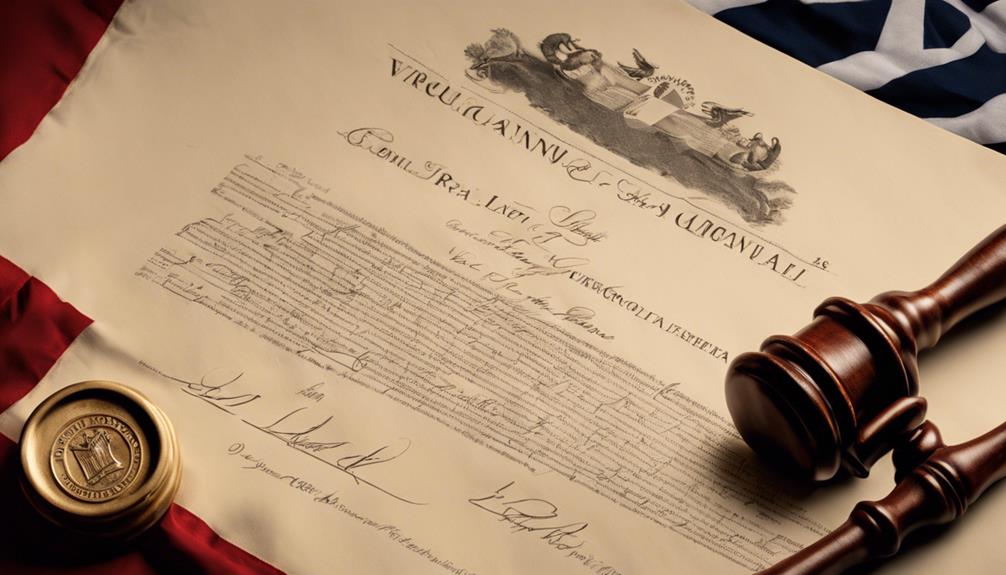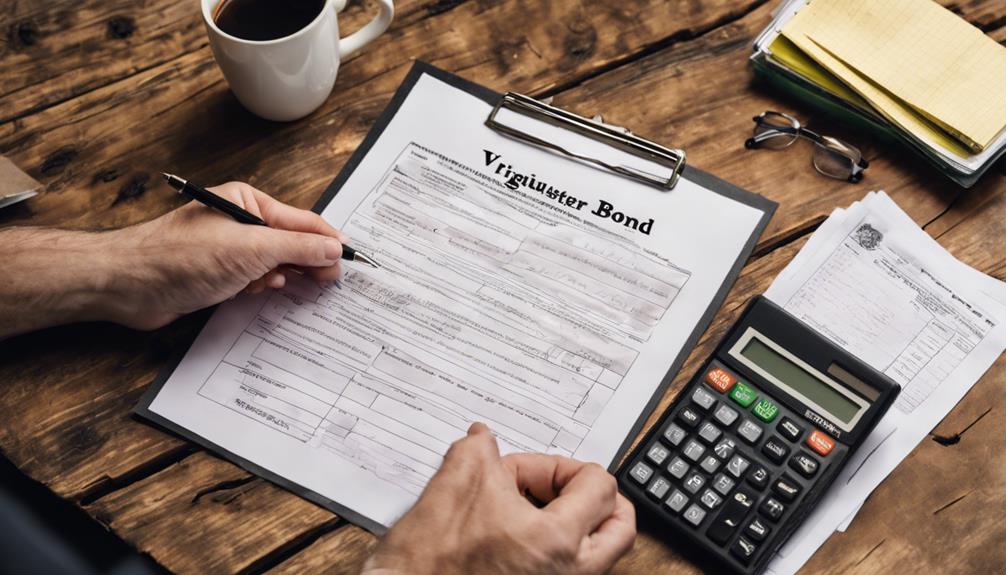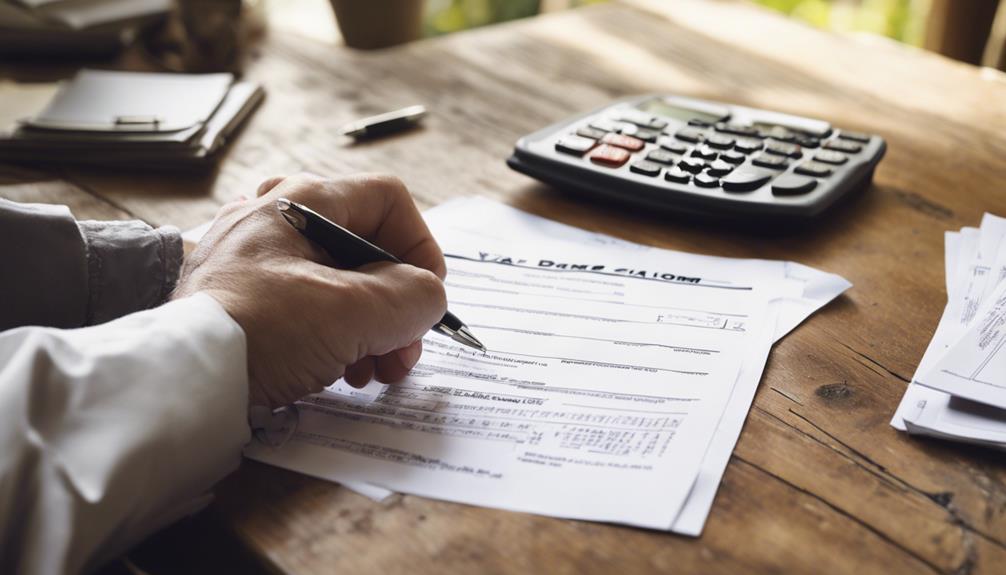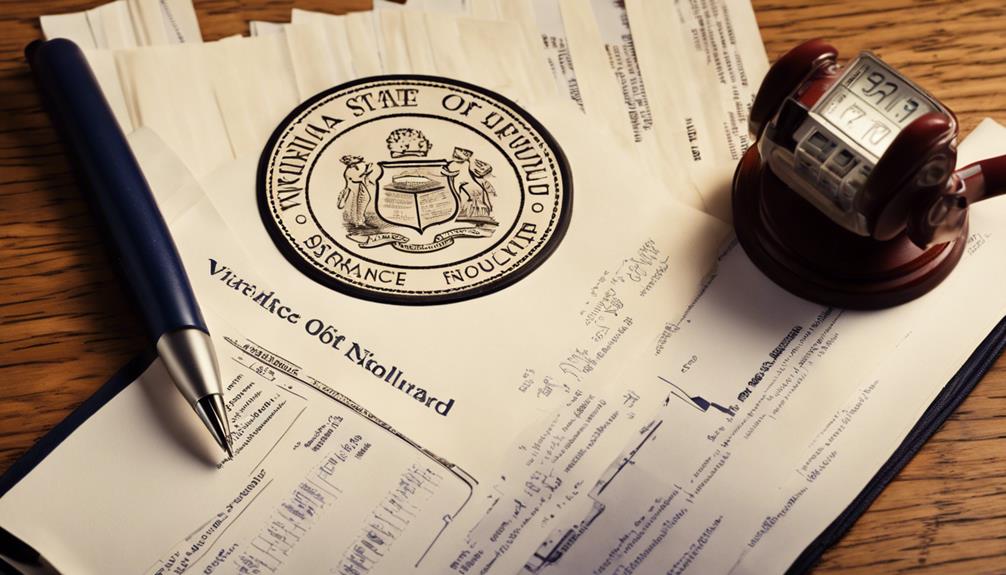When you're considering becoming a public adjuster in Virginia, understanding the Virginia Public Adjuster Bond is essential. This bond not only protects your clients but also reflects your professionalism and compliance with state regulations. With a typical bond amount of $50,000, it serves as a financial safeguard against any potential misconduct. However, the process of obtaining and maintaining this bond can be complex, raising questions about requirements and consequences. What happens if you fail to comply? The answers might surprise you.
What Is a Public Adjuster Bond?

A public adjuster bond provides essential protection for clients and ensures ethical conduct within the industry. This bond acts as a form of insurance that guarantees you, as a public adjuster, will adhere to the regulations and standards set forth by the state.
When you obtain this bond, you're essentially pledging to act in your clients' best interests, helping them navigate the often complex world of insurance claims.
In Virginia, public adjusters are required to secure this bond to operate legally. It acts as a financial safety net for clients who might suffer from any unethical actions or negligence on your part.
If you fail to fulfill your obligations or engage in misconduct, clients can file a claim against the bond, providing them with a means of recourse.
Importance of the Bond
Securing a public adjuster bond is crucial for anyone looking to build trust and credibility in the insurance claims industry. This bond acts as a safety net for clients, ensuring they're protected against potential fraudulent activities or unethical behavior. When clients know you're bonded, they're more likely to feel secure in your services, which can significantly enhance your reputation.
Furthermore, similar to immigration consultant bonds, having a public adjuster bond ensures accountability and compliance with industry regulations, which is essential for fostering client trust.
Moreover, having a public adjuster bond sets you apart from competitors who may not have the same level of accountability. It demonstrates your commitment to adhering to industry regulations and ethical standards. This can lead to increased client referrals and repeat business, ultimately boosting your income.
Additionally, many insurance companies require public adjusters to be bonded before they'll work with them. By obtaining this bond, you not only meet these requirements but also position yourself as a professional who takes their responsibilities seriously.
In an industry where trust is paramount, a public adjuster bond is more than just a legal requirement; it's a tool for growth and success. By investing in this bond, you're investing in your future and the satisfaction of your clients.
Requirements for Obtaining the Bond

To obtain a public adjuster bond, you'll need to meet specific requirements set by the state. First, you must hold a valid public adjuster license in Virginia. This means you need to complete any necessary pre-licensing education and pass the state examination.
Next, you'll be required to provide proof of a clean financial history, as the state wants to ensure that you can handle claims responsibly. This typically includes submitting a personal credit report.
Additionally, be prepared to provide a background check, which may involve providing fingerprints.
You'll also need to choose a surety company that's authorized to issue bonds in Virginia. The company will evaluate your application and may require you to provide financial statements or additional documentation to determine your eligibility.
Bond Amount and Coverage
Determining the bond amount and coverage for a public adjuster in Virginia is crucial for protecting both clients and the adjuster. In Virginia, the required bond amount typically is set at $50,000. This amount serves as a financial guarantee that you'll conduct your business ethically and comply with state regulations.
It's essential to understand that this bond doesn't directly cover your clients' claims; rather, it protects them from any misconduct, fraud, or negligence on your part.
When you secure a public adjuster bond, it's important to consider the coverage specifics. This bond can cover damages resulting from your actions as an adjuster, ensuring clients receive compensation if you fail to meet your obligations. This peace of mind can be a significant selling point when attracting new clients.
You'll also want to shop around for the best rates and terms, as different surety companies may offer varying premiums based on your experience and business practices.
Renewing Your Public Adjuster Bond

Once you've obtained your public adjuster bond, keeping it active is key to maintaining your credibility and compliance in Virginia.
To ensure your bond stays current, mark your calendar for the renewal date. Most bonds require renewal annually, so staying on top of this will save you from potential lapses.
Before the renewal period, review your bond terms and any changes in regulations that might affect your coverage. It's a good idea to reach out to your bonding company for any updates.
If your bond amount needs adjusting due to changes in your business operations, discuss this with your provider.
When it's time to renew, you'll typically need to submit documentation and pay a renewal fee. This process can vary, so check with your bonding company for specific requirements.
If you've maintained a good standing and have no claims against you, your renewal process should be fairly straightforward.
Lastly, always keep a copy of your renewed bond handy. This not only serves as proof of your active status but also reinforces your professionalism when dealing with clients and insurers.
Stay proactive, and you'll keep your bond in top shape!
Consequences of Bond Violations
Violating the terms of your public adjuster bond can lead to serious repercussions that impact your career and reputation. If you don't comply with the bond's stipulations, you could face penalties, which may include hefty fines or even losing your license to operate as a public adjuster. This not only affects your ability to work but also tarnishes your professional image.
Additionally, your clients may lose trust in you if they learn about any bond violations. This loss of credibility can result in a decline in business, as word spreads about your noncompliance.
Furthermore, if a claim arises from your violation, the surety company may have to pay out damages, and they might seek reimbursement from you, leaving you financially vulnerable.
Lastly, repeated violations can lead to more severe consequences, such as being barred from obtaining future bonds or facing legal action from the regulatory body overseeing public adjusters in Virginia.
It's crucial to understand the importance of adhering to your bond's terms to safeguard your career and maintain your professional integrity. Keep in mind that the stakes are high, and the repercussions can be long-lasting.
How to File a Claim on the Bond

If you've experienced a situation where you need to file a claim on your public adjuster bond, it's important to understand the process clearly.
First, gather all necessary documentation, including your bond details, evidence of the violation, and any correspondence with the public adjuster. This documentation will support your claim and help establish the validity of your case.
Next, contact the surety company that issued the bond. They'll guide you through their specific claims process. You'll likely need to fill out a claim form, detailing the nature of the violation and any financial losses you incurred. Be thorough and precise in your explanation; this will help expedite the review process.
Once you submit your claim, keep a record of all communications with the surety company. Follow up if you don't hear back within a reasonable timeframe.
Resources for Public Adjusters
Public adjusters have access to a variety of resources that can enhance their skills and support their clients effectively. One of the most valuable resources is continuing education. Many organizations offer courses and certifications that keep you updated on industry standards and regulations. This knowledge not only boosts your credibility but also equips you with the tools needed to handle diverse claims.
Networking is another essential resource. By joining professional associations, you'll connect with other adjusters, share experiences, and gain insights into best practices. Attending industry conferences can also provide you with valuable information, from emerging technologies to legal updates.
Don't forget about technology. Utilizing claims management software helps streamline your processes, making it easier to track claims and communicate with clients. Online forums and social media groups offer platforms for real-time advice and support.
Lastly, keep a library of resources, including books, articles, and industry reports. These materials can serve as quick references when you encounter challenging situations.
Conclusion
In conclusion, securing your Virginia Public Adjuster Bond is essential for your credibility and success in the industry. Not only does it protect your clients, but it also demonstrates your commitment to ethical practices. By understanding the requirements and maintaining your bond, you'll build trust with clients and enhance your professional reputation. Don't overlook this vital step in your career; it's a safeguard for both you and those you serve in the insurance claims process.


